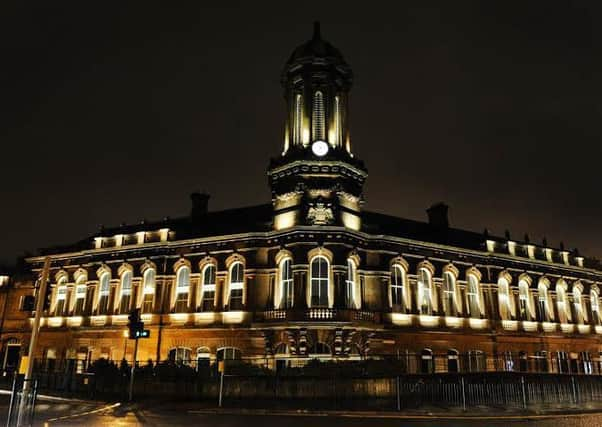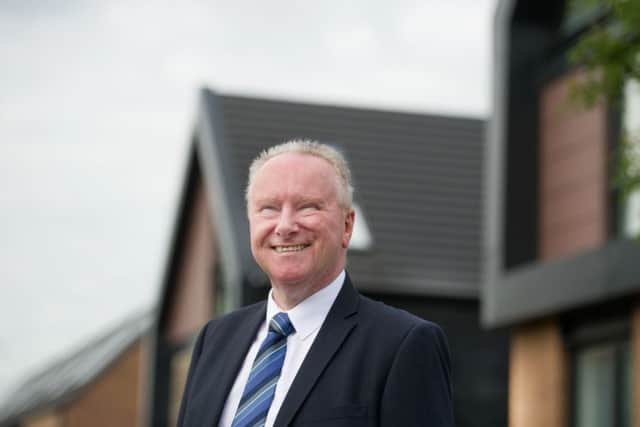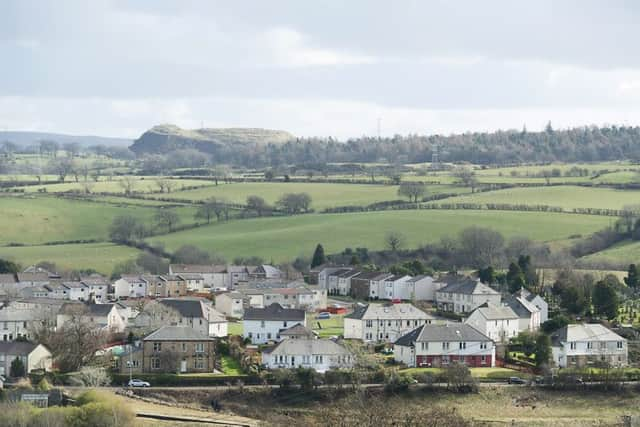Kilmarnock and Barrhead named Scotland’s most improved towns


The awards, which run in partnership with the Scottish Government, are designed to promote the most effective initiatives designed to tackle physical, social and economic challenges in disadvantaged communities throughout Scotland.
In total 24 independent judges drawn from national bodies and community groups decided the winners with 54 applications judged in categories including Most Improved Small/Medium/ Large town, Creative Regeneration and Employability.
Advertisement
Hide AdAdvertisement
Hide AdKilmarnock which was badly hit by the economic recession, was named the most improved large town thanks to a £43 million project which brought new life to its dwindling town centre.


The local authority has made a list of improvements including the renovation of the Palace Theatre and invested in the repair and refurbishment of properties on Bank Street in the town centre.
Derelict buildings such as the Johnnie Walker whisky bond and the Opera House were given new life through the relocation of the council offices into their property.
Kilmarnock train station’s previously unoccupied rooms are now being put to use as the home of community enterprises including a book shop, cafe and electric bike hire.
The judges said: “East Ayrshire council’s holistic urban development plan has created a vibrant town centre for Kilmarnock with restored historic buildings and positive developments in retail, culture, education, housing and tourism.”


Barrhead’s regeneration was also given the nod by the panel of judges as the most improved small town.
The town benefited from a £100 million council-led regeneration with investments including the Barrhead Foundry, new council offices, health and care centre and town centre supermarket.
Alex Neil MSP, Scottish Government Cabinet Secretary for Social Justice, Communities and Pensioners’ Rights personally congratulated all winners at the ceremony.
Advertisement
Hide AdAdvertisement
Hide AdHe said: “The SURF Awards demonstrate the innovative approaches communities can take when they are empowered to deliver the priorities that matter to them most. I am impressed by the diversity of projects and the positive impact they have on people’s lives.
“The Scottish Government values the contribution our communities and wider partners make to our regeneration efforts. By working collaboratively, we can tackle inequality in society to help create a fairer Scotland.”
Among the winners was Laurieston’s ‘Open Spaces’ in Glasgow which received the Creative Regeneration award beating Ayr Gaiety Partnership and Glasgow Women’s Library.
The housing development provides high-quality affordable city living nested in the community. Its aim was to not only provide public amenities but also become to link between New Gorbals, Tradeston and Glasgow City Centre.
Judges commended the “artist-led strategy that complements a major city housing development by making a diverse set of buildings and open spaces - including railway arches and an iconic church - available for creative temporary uses.”
Helmsdale Affordable Housing Project in Sutherland, was selected as the winner of the Community Led Regeneration award. The project saw the creation of the first affordable housing to be built in the village for 35 years. Four new family homes were created in the economically fragile and remote Highland village to help address depopulation and decline.
Andy Milne, Chief Executive of SURF, said: “The SURF Awards link the inspiring creative efforts of community volunteers with strategic partnership investments in infrastructure and town centres. SURF’s job is to help connect local assets and knowledge with national policies and resources. That way, despite the continuing degenerative effects of counter-productive austerity policies, we can still support successful and sustainable regeneration outcomes that ultimately benefit everyone.”
